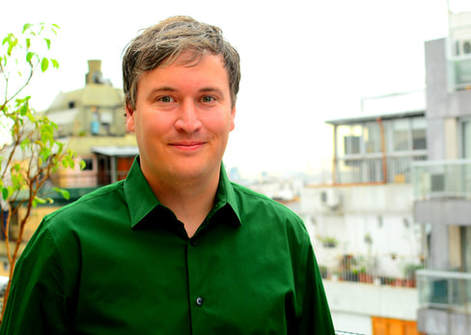
The Institute for Genocide and Mass Atrocity Prevention (I-GMAP) has appointed a new co-director.
Kerry Whigham, assistant professor of genocide and mass atrocity prevention, will become the next co-director of I-GMAP. The appointment comes after the unexpected death of Nadia Rubaii, co-director of I-GMAP and a professor of public administration at Binghamton University, in early March. BU established I-GMAP in 2016, offering the world’s first and only Master of Science in Genocide and Mass Atrocity Prevention (GMAP) discipline.
Whigham was appointed to his current position of assistant professor in 2019. Whigham is also the director of research and online education at the Auschwitz Institute for the Prevention of Genocide and Mass Atrocities, an international nongovernmental organization.
Whigham said he intends to expand I-GMAP internationally while honoring Rubaii’s legacy.
“As co-director, I aim to fill the very large shoes left by our dearly departed colleague and friend, Dr. Nadia Rubaii, who co-founded I-GMAP and worked tirelessly to make it the strong institution it is today,” Whigham wrote in an email. “I am thrilled to join Dr. Max Pensky as co-director, and I am excited to work with him to continue expanding the reach of I-GMAP. For example, I look forward to focusing on expanding our Faculty Fellows program to incorporate college educators well beyond the borders of New York state, as we make this program a global one.”
Max Pensky, co-director of I-GMAP and professor of philosophy, said Whigham is a promising fit for the position, commending him for this work ethic and creativity.
“Whigham exemplifies what I-GMAP is all about — he is both a productive and innovative academic,” Pensky wrote in an email. “His work on the political and ethical dimensions of memory in post-genocide societies has already won wide praise. He is an innovative curator, whose landmark exhibition, artivism, showcases artworks from around the world that confront the legacies of atrocity violence.”
Whigham is an advocate for preventing large-scale violence worldwide and said I-GMAP is accomplishing this goal.
“[I-GMAP] is an interdisciplinary institute that focuses on bridging the gaps that exist between the global community of scholars, policymakers and practitioners working toward the prevention of genocide and other forms of large-scale violence,” Whigham wrote. “We have an array of programs that help us accomplish this goal. Our Charles E. Scheidt Faculty Fellows [in Atrocity Prevention] program brings together faculty from across [BU’s] many colleges and disciplines, alongside faculty from other SUNY schools, to equip them with the tools they need to incorporate an atrocity prevention lens into their teaching. This way, students in every department you can imagine — from dance to public health, business to history — are learning about the part they can play in preventing identity-based violence.”
Julia Saltzman, a second-year graduate student pursuing a master’s in public administration (MPA), said she thinks Whigham has a lot to offer to I-GMAP due to his unique perspective. Whigham is Saltzman’s MPA adviser.
“I look up to Kerry in many ways — you will often find me saying he is who I want to be when I ‘grow up,’” Saltzman wrote in an email. “Through his guidance and his example, I have pursued memory studies as the focus of my GMAP certificate. He has taught me the value of symbolism and how commonplace things we experience every day may shape our identities. He offers a unique perspective on genocide and mass atrocity prevention that I believe has so much potential to generate real and substantial change. He is passionate about the work there is to be done and I do not believe that there is anyone more qualified to take up the torch in lieu of Nadia’s passing.”
Mercia Kandukira, a third-year Ph.D. student studying English, said Whigham is a great teacher who draws students’ attention, even with hard-to-swallow topics.
“I took a comparative genocides class in the fall with [Whigham], and emotionally, it was not an easy class, but I was able to sit through three hours once a week discussing how humans kill humans,” Kandukira wrote in an email. “Why? The simple answer is that I had a great teacher.”


